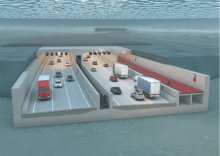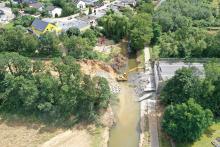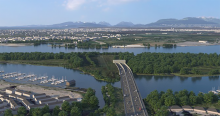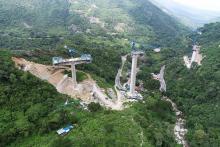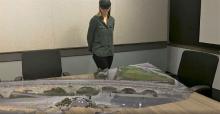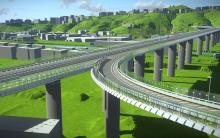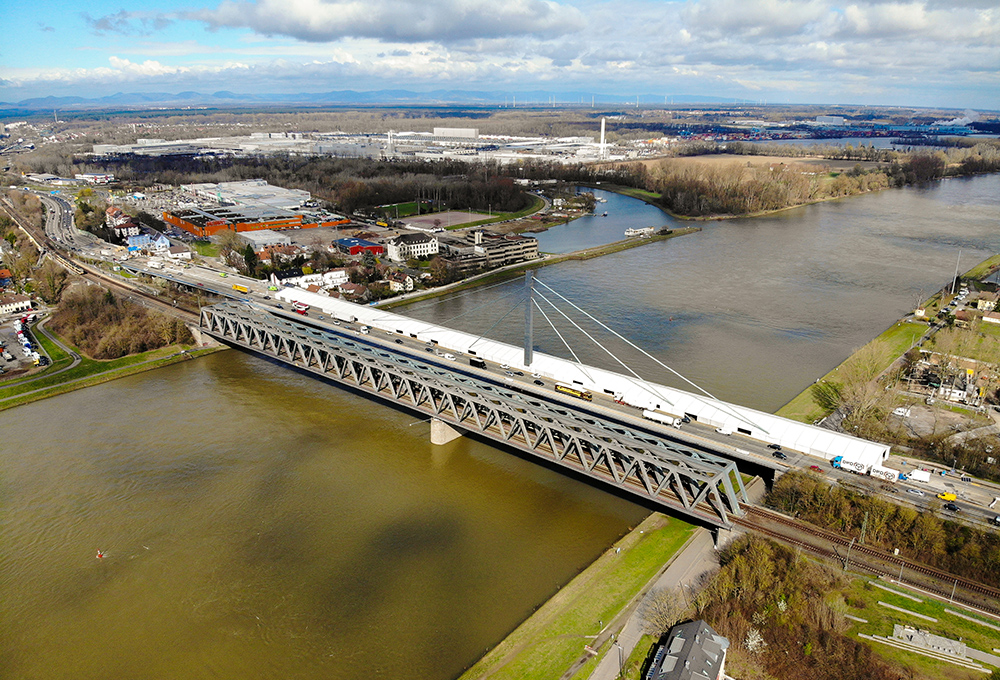
By installing an 18.5m-wide by 335m-long tent, work continued regardless of weather conditions and in a dry and frost-free environment. Work was completed without delays.
Kontent Structures supplies temporary and permanent accommodation for events and business solutions, mostly across Europe. All its tent structures are designed and produced in-house with its 5,000m² facility in Alphen-on-the-Rhine, between Leiden and Utrecht in the Netherlands.
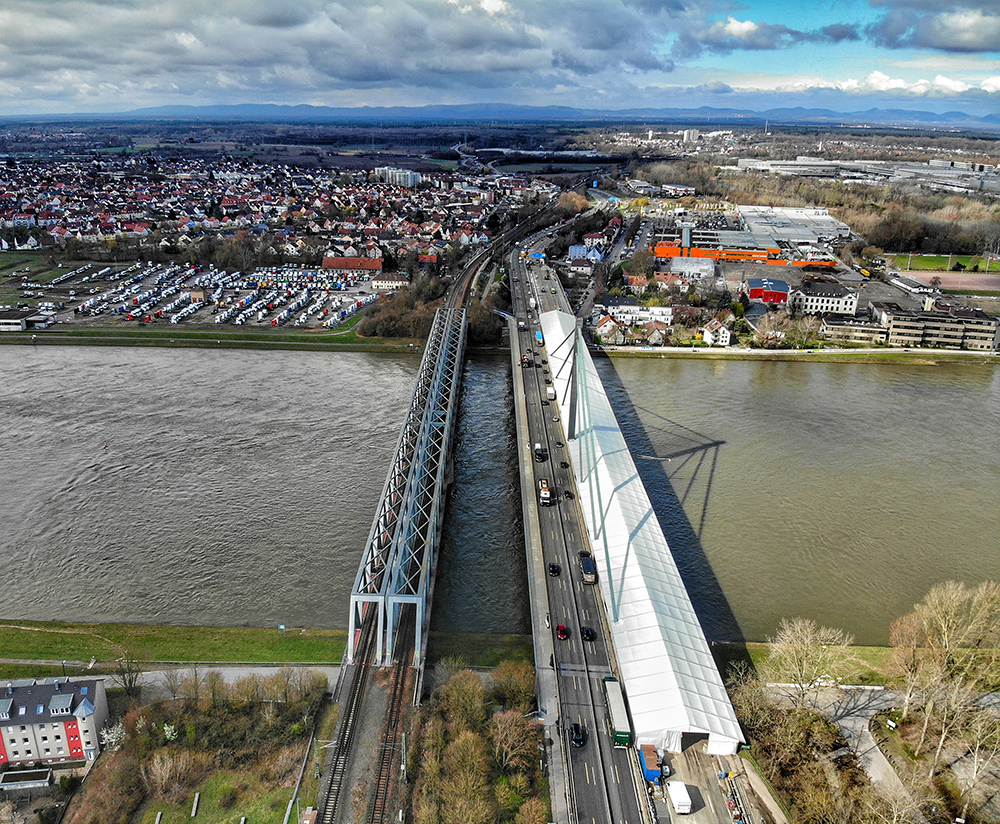
The tent for the Karlsruhe bridge project was made mostly of extruded aluminium profiles with steel connector parts. Kontent Structures sets up and dismantles its structures and the length of its tent systems is unlimited. The maximum free span is 40m. But this length depends on the location, period and weather conditions of the site to be covered.
All the tents, which are reusable, are water and weatherproof. The company said that before deciding on a tent system and design, it does a structural analysis according to the European EN Eurocode 1991-1: Actions on Structures. This includes wind and snow loads according to location-specific values. EN 1991-1-1 gives design guidance and actions for the structural design of buildings and civil engineering works, including densities of construction materials and stored materials, the self-weight of construction elements and imposed loads for buildings.
The company said that in the case of extremely cold weather, sandwich panels and air-filled double-layered roof covers can be used to provide insulation. A sandwich panel is any structure made of three layers - a low-density core and a thin skin-layer bonded to each side. Sandwich panels are used where a combination of high structural rigidity and low weight is required.To enhance the insulation of a tent, heating systems can be integrated into the structure to create a better working environment.
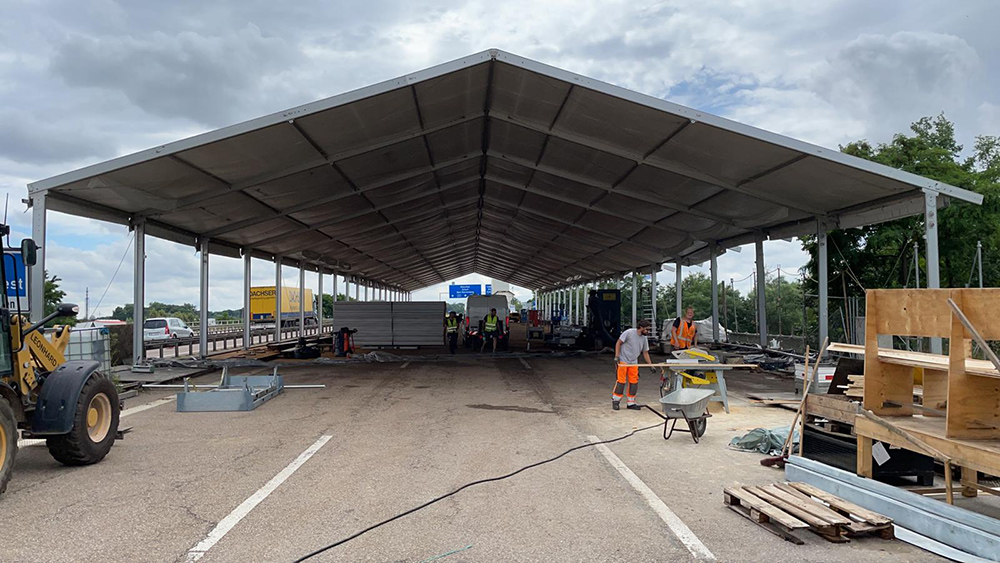
The company said that it is currently working on another site in Guntersdorf, a market town in Lower Austria.
Kontent Structure’s client was Strukton, a specialist construction company. Earlier this year, Strukton announced that it will build a 1.8km immersed tunnel underneath the Scheldt River as part of a ring road around Antwerp, Belgium. Strukton Immersion Projects, part of the Dutch engineering firm Strukton Civil, focuses on the floatation, transport and immersion of tunnel elements and caissons.
The company will develop eight tunnel elements for the Oosterweel connection that will connect the Expressweg (E34) near Blokkersdijk via a toll tunnel (the Oosterweeltunnel) underneath the Scheldt, connecting the Antwerp Ring Road at Merksem and Deurne.

